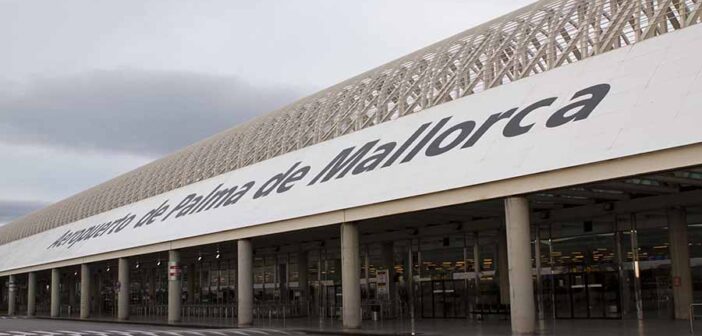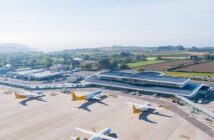Palma de Mallorca Airport (PMI), also known as Son Sant Joan Airport, serves as the primary gateway to the Balearic Islands, handling over 33.3 million passengers in 2024. Located 8 kilometres east of Palma city centre near Can Pastilla, PMI connects to 192 destinations across 44 countries with airlines like Ryanair, easyJet, and Air Europa.
The passenger experience at PMI is designed for efficiency, with a single terminal split into four modules (A, B, C, D) ensuring clear navigation. Digital screens and clear signage guide travellers through check-in on Level 2, security on Level 4, and boarding areas. Staff at Aena Service Centres assist with queries, and accessibility features, including ramps, lifts, and a Sala Amica lounge for reduced mobility, make the airport welcoming.
Security wait times average 20 minutes, with Fast Track lanes available for €4.50. Recent upgrades, including a 2011 renovation, enhance comfort, though the terminal can feel warm in summer.
Accessing PMI from Palma is straightforward, with a 15-minute drive via the Ma-19 motorway. Parking offers 5,700 spaces, with short-term lots at €3/hour and long-term at €12/day, including 60 disabled spaces. The EMT Line 1 bus connects to Plaça d’Espanya every 15 minutes for €5, taking 25 minutes, while regional buses serve Alcْdia and Magaluf.
Taxis cost €20-€30, with ranks on the arrivals floor, and car hire from Avis, Hertz, and Sixt is on Level 0. The Brightline rail, under construction, will link to Palma by 2026, but no train currently exists.
The airport’s layout features a central terminal with three public levels (0, 2, 4) connecting to four modules: A (28 gates, non-Schengen), B (8 gates, regional), C (33 gates, Schengen), and D (19 gates, international). Check-in (195 counters) and security are on Level 2, with baggage claim and customs on Level 0. A free shuttle bus runs every 15 minutes between modules, though walking times can reach 10 minutes during peak periods. E-gates for EU passengers streamline international arrivals, and the PMI app aids navigation.
Delays can occur during peak summer months (July-August), with security waits reaching 30 minutes and passport control queues for non-Schengen flights up to 90 minutes. Weather, such as storms, or air traffic control issues may disrupt flights, so travellers should arrive three hours early for international and two hours for domestic flights, checking status via Flightradar24 or the PMI website. Construction for rail and parking expansions may cause minor disruptions.
Dining options are plentiful, with over 30 outlets including Café Mallorca and Enrique Tomلs in Module C for local tapas, and Starbucks for coffee. McDonald’s and Foodmarket serve quick bites, while Module D’s La Plage offers Mediterranean dishes. Retail includes over 50 shops, with duty-free stores in all modules, H&M, and Feltrinelli Village for books. Local souvenir shops sell Mallorcan ceramics and sobrasada. A pharmacy and newsagent meet travel needs.
Facilities are modern, with free Wi-Fi (“Aena Free Wi-Fi”), charging stations, and lounges like Formentor (£34, Module D) and Llevant (£34, Module A). Family amenities include baby-changing rooms and play areas, while pet relief zones are outside the terminal. Luggage storage costs €10/day, and ATMs are in parking areas. The on-site Iberostar Selection Llaut Palma, a 10-minute walk, offers convenient lodging. Toilets adapted for ostomy patients are available.
On-time performance is generally reliable, with 1,100 daily movements supported by two runways, though summer congestion can cause delays. EU Regulation 261/2004 protects passengers, offering up to €600 for delays over three hours. Connections are efficient, with 30-minute minimums for domestic and 45-minute minimums for international transfers, aided by the shuttle bus. Passengers should confirm gate assignments via airline apps.Potential delays may stem from summer crowds, weather, or ongoing construction. Travellers can mitigate risks by using Fast Track, pre-booking parking, or opting for midweek flights.




